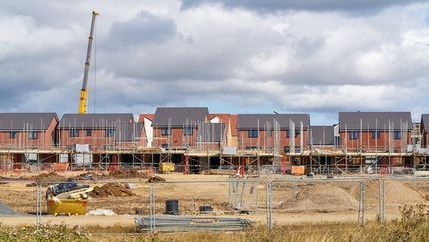
Central to these reforms is the commitment to build 1.5 million new homes by the end of the current Parliament, supported by substantial financial backing. A capital investment of £39 billion will underpin a new 10-year Affordable Homes Programme, complemented by a previously-announced £550 million from major financial institutions aimed at addressing social inequality through housing provision.
Propertymark will closely monitor the rollout of these policies, ensuring members are informed and equipped to navigate the changing landscape effectively. We welcome the recognition of the vital role housing plays in the economy and will continue advocating for policies that support the property sector's sustained and inclusive growth.
Data-driven market efficiency
The UK Government states that data is a key economic asset and commits to developing enhanced Smart Data initiatives which could streamline aspects of home buying and selling. Propertymark has long championed the digitisation of property transactions, highlighting the benefits of real-time access to shared data platforms.
Fall-throughs impact one in three transactions and cost people around £400 million a year; this is on top of the four million working days lost by conveyancers and estate agents alone, which is equivalent to £1 billion.
Propertymark has advocated for reform for some time. In early 2024, we set out proposals in our position paper, The Future of Home Buying and Selling, that focuses on increasing consistency and transparency, improving the speed and quality of the process, and reducing fall-throughs.
Accelerating housing delivery with planning system reforms
The UK Government has identified the country's planning system as a major obstacle to economic growth and housing development and has begun a programme of reforms expected to generate up to £7.5 billion for the economy over the next decade. Measures include:
- Funding for 300 new planning officers and increased flexibility in local planning fees.
- Accelerated digitalisation to streamline planning applications and reduce inaccuracies.
- A new Nature Restoration Fund designed to simplify developers' environmental obligations, easing project timelines.
Strategic sites and regional growth
The introduction of a £600 million Strategic Sites Accelerator is set to expedite the availability of development sites, addressing critical infrastructure and environmental issues such as land remediation and transport enhancements.
Further regional support will come from a new National Housing Bank – a subsidiary of Homes England - collaborating with local leaders to address housing priorities. The Bank is predicted to deliver over 500,000 new homes by offering the private sector long-term government-backed finance.
Mayors in the North and Midlands will have access to a £500 million Mayoral Recyclable Growth Fund, which will allow them to invest in growth projects including major city-centre housing developments and industrial sites. Some high streets will also see investment through targeted funding.
Infrastructure to support new homes
The UK Government’s complementary 10-Year Infrastructure Strategy aims to give investors long-term certainty, linking major transport initiatives to housing delivery:
- The East-West Rail is expected to support the construction of up to 100,000 homes along the Oxford-Cambridge corridor.
- HS2 could lead to the creation of 41,000 new homes in the West Midlands and a further 22,000 around the Old Oak Common station in West London.
These initiatives will be bolstered by measures to remove barriers to digital infrastructure deployment, significantly enhancing broadband accessibility, particularly in multi-occupancy dwellings.








